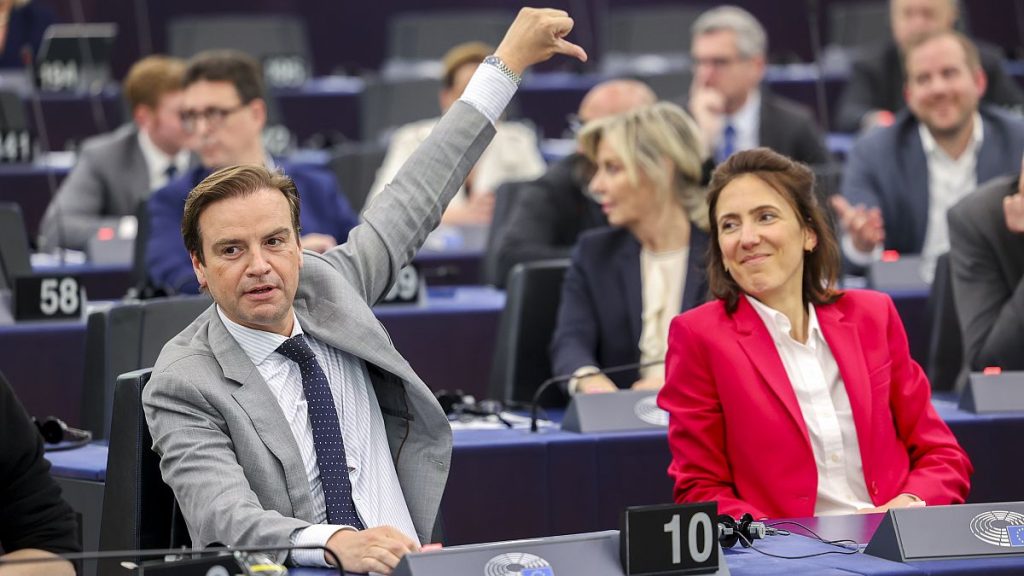The EU liberals are facing a dilemma as they consider whether or not to expel the Dutch VVD party for forming a coalition with the far-right PVV party of Geert Wilders. Renew Europe, a centrist political group in the European Parliament, was initially set to vote on the expulsion after the elections, but due to a heavy loss of 21 seats, the decision has been postponed. Instead, the group plans to send an observer mission to the Netherlands to assess whether the party is straying from liberal values. The official decision will be made at an Alliance of Liberals and Democrats for Europe (ALDE) council party in Vilnius, Lithuania.
The decision to potentially expel the Dutch VVD party goes against a commitment made by Renew Europe’s president, Valérie Hayer, who pledged not to cooperate or form a coalition with far-right and radical parties. This commitment was not consulted within the party and was only made by the group’s president. The situation arose after the Dutch VVD party entered a coalition agreement with the far-right PVV, New Social Contract (NSC), and the Farmer-Citizen Movement (BBB) following the general election in the Netherlands. Despite criticisms that the VVD had distanced itself from the group’s values, an official motion for expulsion was not tabled within ALDE.
In the European Parliament elections, the PVV party won six seats, leading to their inclusion in the far-right Identity and Democracy (ID) group, which currently has 58 MEPs. The ID group has been excluded from key positions in the parliament due to a ‘cordon sanitaire’. Negotiations are still ongoing for the final composition of parliamentary groups, with a deadline of 4 July, meaning that the balance of power could potentially shift. The situation highlights the challenges faced by centrist and liberal groups in navigating alliances and coalitions with far-right parties.
The potential expulsion of the Dutch VVD party has raised questions about the strategy and principles of Renew Europe in maintaining its position as a centrist force in the European Parliament. While the official decision will be made at the ALDE council party in Vilnius, there are concerns about the implications for the group’s unity and integrity. The situation also underscores the growing influence of far-right parties across Europe and the challenges in maintaining a united front against them.
The decision on the Dutch VVD party’s potential expulsion from Renew Europe will have broader implications for the future direction of liberal politics in the European Parliament. The outcome of the discussions and the final decision made at the ALDE council party will shape the group’s stance on alliances and coalitions with far-right parties. The situation reflects the complex political landscape in Europe, with different factions and ideologies vying for power and influence. Ultimately, the handling of this issue will impact the credibility and effectiveness of liberal and centrist groups in the European Parliament.


